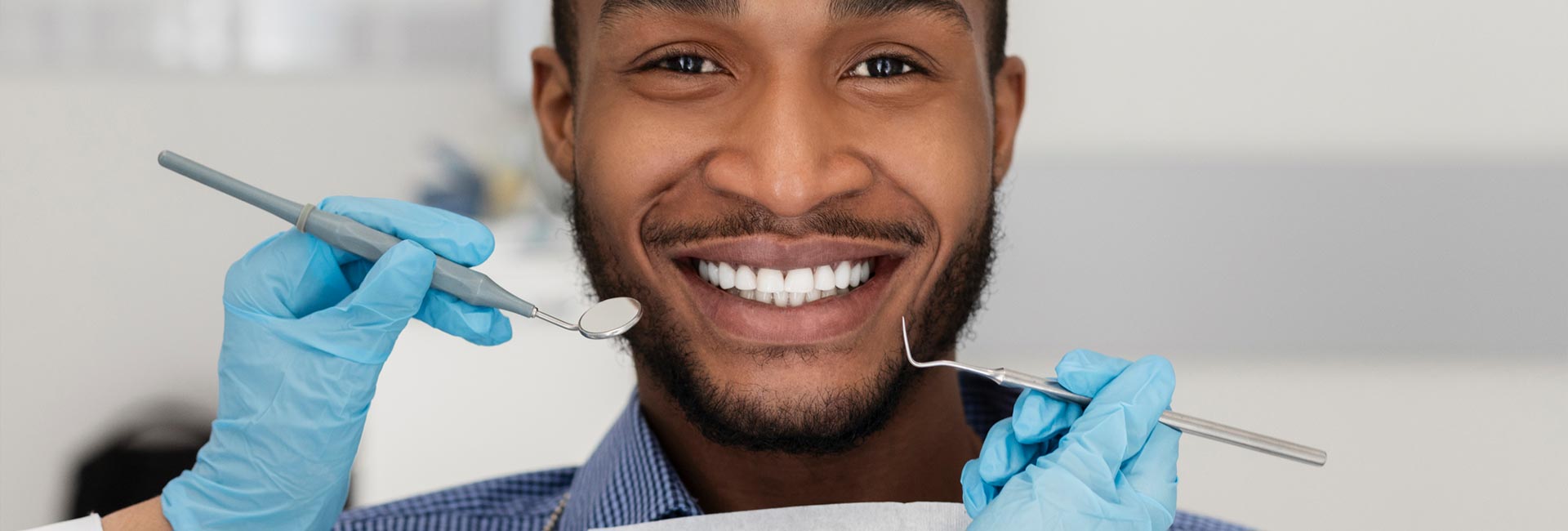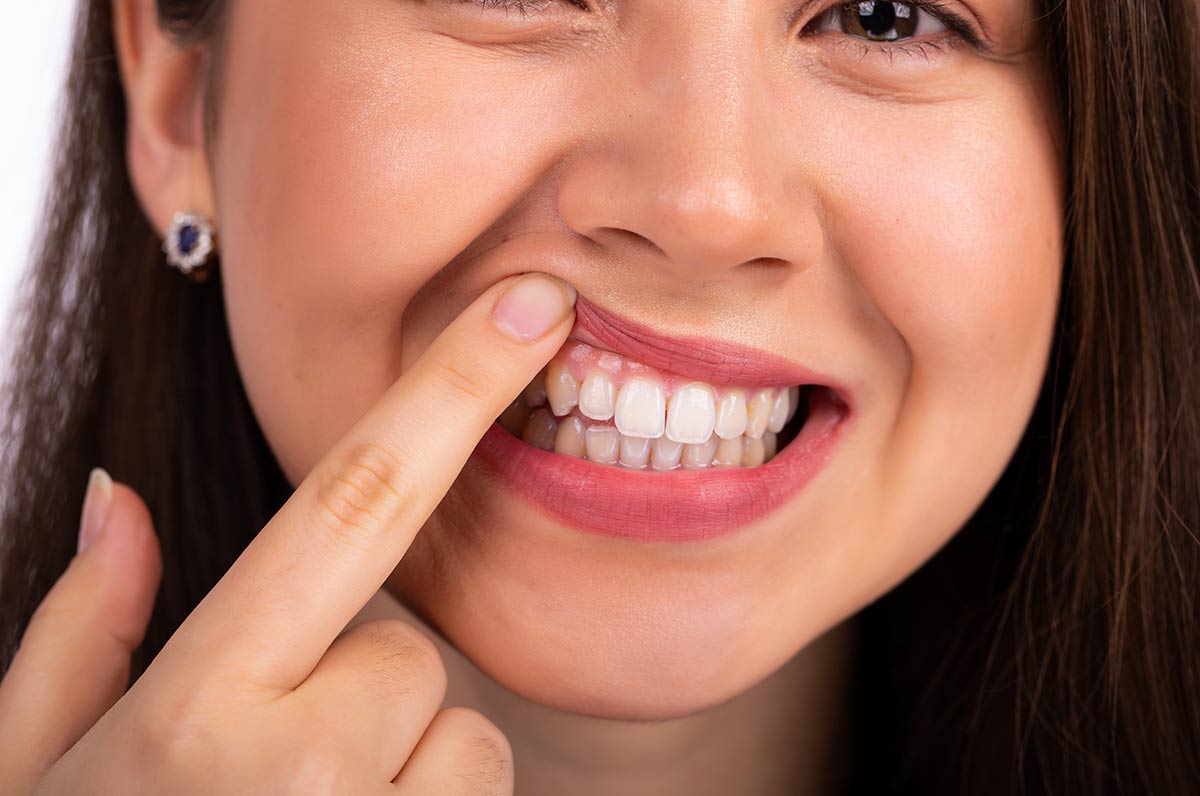![Get Superior Dental Treatment for Periodontal Disease in Dolton IL plus Tips on Prevention]()
Have you been struggling with sore gums lately, or even for a long time now? You might have periodontal disease While it might be scary to have this oral condition, you can get treatment for periodontal disease in Dolton, IL, by a trusted dental professional
Before tackling what treatments are…
![Options for treating gum disease explained by Dolton, Illinois dentist]()
Gum disease is a very common issue affecting tens of millions of Americans every year It is easy to ignore the early gum disease symptoms because they typically seem mild – perhaps you notice some swelling in your gums or bleeding when you brush your teeth However, if left…
![Benefits of treating gum disease in Calumet City]()
How healthy is your mouth? Unless you’ve been evaluated by a dentist recently, you may not know the answer to that question If you look in the mirror and see straight, white teeth, you probably think all is well What you may not see are the ever-so-subtle signs of…
![What is a “deep cleaning”?]()
I have had my teeth cleaned before They scrape the tartar off of my teeth and polish them up Then I’m on my way So what is the point of a deep cleaning?
A fair question and one that I get in some fashion or another
The fundamental difference lies in…
![Gum disease risk factors, symptoms, and treatment for Dolton residents]()
What is gum disease?
Let’s start at the beginning, with bacteria and other microorganisms colonizing around the base of the teeth Gradually, inflammation causes gum tissue to separate from the tooth roots, creating a deep, infection-filled pocket The infection can gradually spread to the bone, and begin eroding it Eventually,…
![Recognizing and treating gum disease is keeping South Holland, IL healthy]()
Are your gums healthy? Before you answer that question, you might want to check with your dentist This simple fact is, without a professional diagnosis, most people don’t know that they have gum disease until it has already done serious damage Without treatment, this insidious infection can lead to…
![Dolton, IL provides treatment for periodontal disease]()
Periodontal disease is a serious concern It is important that patients in the Dolton, IL area take good care of their smile to avoid the development of this condition However, when it forms, it is essential that a professional provide appropriate treatment and assist them in maintaining a healthy…
![How patients in the Dolton area can achieve healthy gums and teeth]()
Dr Dean Dietrich in Dolton is a quality dentist who wants his patients to understand the importance of healthy teeth and gums At Pleasant Dental®
, he emphasizes the need for taking good care of the smile every day, while maintaining recall visits with their dentist Oral health is essential for…
![Dolton, IL area dentist offers treatment for gum disease]()
Gum disease is a serious issue that can affect the health and appearance of the smile Dr Dean Dietrich of Pleasant Dental®
in Dolton, IL encourages patients to take the time to learn about this condition, the symptoms that present, and discuss with their doctor effective treatment when it has…
![Dolton patients ask about periodontal disease treatment]()
Periodontal disease is a common dental problem However, Dolton area patients can avoid the development of it with oral health care Oral care includes regularly brushing and flossing the teeth after every meal to avoid the development of plaque and tartar Oral care also means regular visits to the…
![What is your risk of developing periodontal disease in Dolton?]()
Gum disease begins with plaque, which forms in everyone’s mouth Ideally, it is removed regularly, and does not have the opportunity to cause disease However, plaque often lingers too long for reasons such as infrequent professional dental care, lax hygiene habits, and dental problems that make brushing difficult, such…
![Healthy mouth, healthy body: What Calumet City residents should know about gum disease]()
In the past, many people did not take dental care and oral hygiene seriously Cavities, gum disease, and missing teeth were quite common In modern times, we have come to appreciate the beauty of a great smile and understand the importance of oral health
Risks of gum disease
We have known…
![What are the signs of Gum Disease?]()
Patients that do not brush and floss their teeth regularly or attend scheduled dental check-ups and cleanings may slowly begin to suffer from the harmful consequences of developing gum disease Gum disease is a serious condition that can result in irreversible damage, such as the loss of natural teeth…
![Gum disease prevention tips from your Dolton dentist]()
Gum disease, also known as periodontal disease, is essentially an infection of the gum tissue, concentrated in the area around the teeth In some ways, it is very similar to other infections The best way to prevent it is to keep the area clean, and keep your immune system…
![What is Periodontal Disease?]()
Periodontal disease is a form of gum disease that can cause extensive problems for patients who let it go undiagnosed and untreated It can result in not only pain, bleeding, and swelling, but can result in complete loss of bone structure and irreversible damage–including the permanent loss of your…
![What is Gum Disease in South Holland]()
Dr Dean Dietrich in the South Holland area believes patients should have access to affordable dental care in order to avoid the development of concerns that can negatively affect one’s oral health and wellness When patients do not maintain regular dental visits with the team at Pleasant Dental®
and fail…
![Patients in the Dolton area ask, what causes gum disease?]()
Gum disease is a serious issue that dentists in the Dolton area do not take lightly It is important for patients to understand what causes gum disease and learn about ways to avoid it It is essential that these patients understand how gum disease (also called periodontal disease) can…
![Dolton, IL area patients can obtain treatment for painful gums]()
Dr Dean Dietrich of Dolton, IL is a dentist in the community who can help with the treatment of gum disease which is known for causing swollen, painful gums that can be uncomfortable
Dr Dean Dietrich of Pleasant Dental®
is a Dolton, IL professional who is ready to help patients in…


























